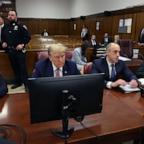Creating a Smarter Reality Show With Entrepreneurial Ideas
Some call it the "Real World" for brainiacs, but it's more than reality TV.
Feb. 8, 2012 -- A group of young social innovators with ideas that might change the world spent three months living in a house having their lives taped 24/7 for an online reality show.
It's called the Unreasonable Institute and was created during a light-bulb moment by Daniel Epstein, along with fellow University of Colorado alumni Teju Ravilochan and Tyler Hartung.
"We're very intentional about not making this into reality TV. We wanted this to be real TV," Epstein said. "We want to be showing the struggles, the ups and downs and the wins of entrepreneurship."
Competition was stiff. More than 300 people applied from 65 countries to attend the 32-day program nestled in the foothills of Boulder, Colo., and 26 were selected.
"The Unreasonable Institute is an international accelerator for early-stage entrepreneurs who are wielding entrepreneurship as a mechanism for combating social challenges, and they're trying to take those to scale," Epstein said.
The institute's name comes from a quotation by Irish playwright George Bernard Shaw: "All progress depends on the unreasonable man." But these entrepreneurs who are selected believe they can realistically affect the lives of at least 1 million people.
Some of the ideas: utilizing worms to increase agricultural yield; providing solar cookstoves to rural regions in the Himalayan Mountains; or tackling anemia through iron fortification and testing. One young woman literally reinvented the wheel.
The water wheel is a 25-gallon drum that moves five times the amount of water possible than traditional methods, which is five gallons carried on the head, Cynthia Koenig, inventor and CEO of Wello said. "So not only is it alleviating women and girls from this tremendous physical burden of water collection but it's also reducing the time burden. Women and girls spend about 25 percent of their time each day collecting water," she said.
Daniel and his team at the institute match the early-stage entrepreneurs with mentors such as the chief of technology at Hewlett-Packard, as well as investors who come to stay in the house and help them bring their ideas to scale.
"It's amazing what Unreasonable will do," said Myshkin Ingawale, who raised money at the institute for his company Biosense, which is helping to monitor anemia in India.
"We call it accidental productivity. So you have 26 people with ideas to change the world and they are put together in this frat house which they call the mansion. Synergy is the perfect word to describe it."
When ABC News stopped by the institute, second-year ER's Executive Producer Neal Baer was offering mentorship to the 26 entrepreneurs, teaching them how to use good storytelling techniques to help raise funds.
"When you are pitching to a venture capitalist, I want to be moved," Baer told the fellows. "The thing I found that moves venture capitalists is they want to know the story. They need to see the numbers but if they can't see it, then they're not going to be involved."
The do-gooders get by with barely any sleep for six weeks. By day, the fellows might go to the mountains with a mentor such as Baer, or potential investor. They also discuss their ideas at workshops, or take part in a large pitch where entrepreneurs present their companies to the community for feedback. By night, they have dinner at a huge table straight out of a scene from "Beauty and the Beast."
"At the dinner table, we try to meet with random people we don't know so we can mingle a little bit, dinner's supposed to be fun," said Mohamed Ali Niang, CEO of Malo Traders, an organization fortifying rice in Mali.
And then it's off to town out to blow off a bit of steam. After all what is a revolution without a little dancing?




